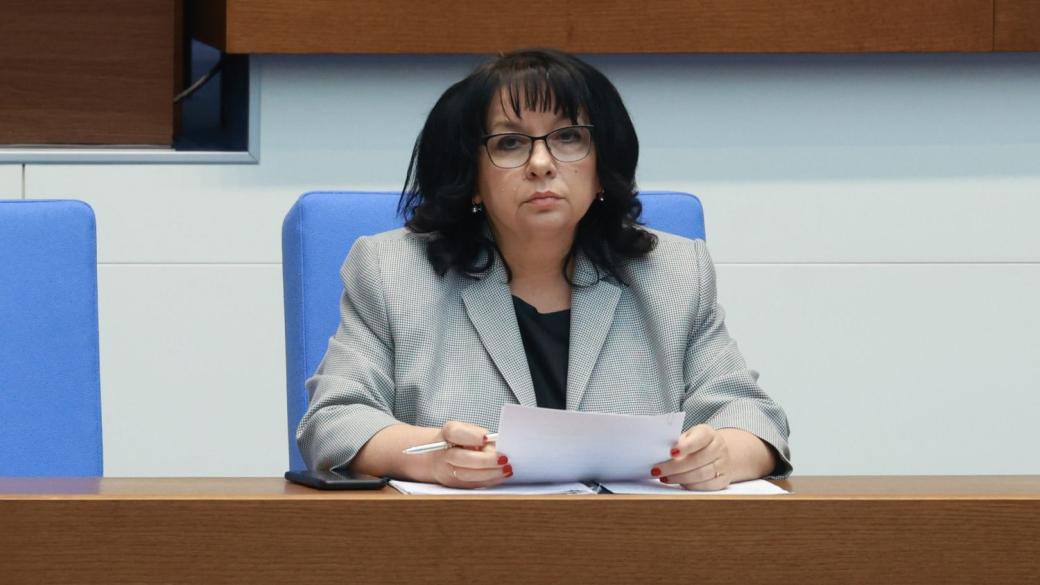'A foretold story': Bulgaria’s 2024 budget deficit likely to go beyond eurozone limit
There is no option to narrow the "gap" in the treasury that does not include cutting expenditure

© ECONOMIC.BG / BTA
The budget deficit problem is a "foretold story”, and Bulgaria will probably not meet this criterion for the eurozone when considering 2024 parameters.
According to economists, contrary to the concerns that arose due to the huge planned expenditures in the 2025 Budget, the real obstacle may actually lie in the 2024 Budget. Some experts predict that the latter will have a higher deficit than the permissible 3% level.
This would make Bulgaria's progress in taming its inflation, which was only 0.1 points away from the required levels in December, meaningless.
What is happening now is a foretold story. This trend was set back in 2021 when some people started talking about growth based on more spending,” Lyubomir Datsov, a member of the Fiscal Council, told Economic.bg.
Dimitar Chobanov, an economist and lecturer at the UNWE, said that the data on the deficit on an accrual basis for the third quarter of 2024 were "quite unexpected" by the Ministry of Finance and there are doubts whether they will be corrected in the latter, when many expenditures have been made, including those under the capital expenditure program.
The 2024 data shows that it is quite possible that this 3% deficit was already exceeded back then," says Chobanov.
He added that in the withdrawn 2025 Budget draft, the planned increase in social spending was 3 billion euros under laws and mechanisms for salary and pension growth. "Once a certain base has been reached, there is no way, by law, for these pensions to be reduced - either there will be growth or there will be zero growth," the economist explained.
Even if an excessive deficit has not been incurred in 2024, for now, the picture looks very unfavorable for 2025, and all the way until 2028 at least," Chobanov warned.
Urgent information
Over the weekend, Finance Minister Temenuzhka Petkova urgently requested information from all primary budget spenders (ministries, departments, NSSI, healthcare, etc.) regarding accrued (due) expenses and liabilities from last year.
This happened after GERB Chairman Boyko Borissov stated on Saturday, on Facebook, that he would request information on which 2024 expenditures expenses had been transferred to 2025, "in order to meet the set deficit on a cash basis."
This data is important because when considering a eurozone membership application, Brussels monitors the public deficit not on a cash basis, but on an accrual basis, which also includes unpaid funds.
Overdue fiscal tightening
According to Datsov, the currently swelling budget deficit is due to inflated spending from previous years.
He explained that similar to the 2021-2023 period, it is not possible to see what is happening right away.
The budget has internal mechanisms through which it absorbs and extinguishes these various deviations and problems, but when the trend takes hold, things become visible. We have reached this period. This is not surprising,” commented Datsov.
He presented data showing that even if we only look at 2024, the deficit should be higher. Since last year, there have been nearly 1.25 billion euros of unspent capital expenditure funds and another 600 million euros returned by municipalities in February 2024. If these expenditures had been implemented, the deficit would have been higher.
What you see as implementation is not real, because it has been adjusted downward by 600 million euros. There is 1.25 billion euros from the non-implementation of capital expenditures, that is, already in 2024 there was a 1.5 billion euros deficit, which is a problem," said the financial expert.
According to him, Bulgaria should have started a process of fiscal tightening at least two years ago. Achieving fiscal consolidation (deficit reduction) by increasing spending is "one of the most inefficient things according to many scientific studies, but in history, this happens often because it seems easiest to many people."
Chobanov pointed out that according to the Ministry of Finance's forecasts, Bulgarian GDP for 2024 will amount to about BGN 201.5 billion (about 103 billion euros).
When the result for the deficit on a cash basis is compared (ed. note - 3 billion euros), it exceeds 3%," says Chobanov.
If Bulgaria moves to an excessive deficit procedure, this could lead to a downgrade of our credit rating and borrowing would become more expensive.
(The excessive deficit) could also suspend the process of integration into the eurozone for a while," predicts Chobanov.
Is cost-cutting a panacea?
As Economic.bg wrote some time ago, the path to overcoming the "hole" in the treasury is through spending cuts. However, the newly formed government coalition stated last week that they would neither renege on their promises of higher salaries and pensions nor will they increase taxes.
For me, there is no way to control the deficit without significant changes in the expenditure side. Without them, everything else becomes pointless as a topic," says Datsov.
He added that it would be unwise to increase taxes in the long term because this is one of Bulgaria's few advantages. Instead, a one-time higher VAT levy for 2025 of 22% could be introduced, combined with expenditure measures.
The measures, rumored to be proposed, will simply aggravate the business environment and will have a negative long-term effect on growth, and no one wants to live in a country where they are constantly feeling watched and followed," Datsov warned.
"Without taking serious measures on the expenditure side, there is no way to meet the 3% target," Chobanov said. He pointed out that direct taxes cannot be increased once the year has begun, and that this could lead either to the creation of new taxes or to an increase in indirect taxes.
Was there an excessive deficit in 2024?
According to the two economists, information on the deficit on an accrual basis for last year will be released in March at the earliest.
"We won't know the final results for 2024 for at least another two months, because there is no real information system there, and experts will have to open folders, review the huge volume of operations that have occurred, and depending on what they know, and they don't know everything that is happening downstream in the systems, make a decision on how to qualify things," explained Datsov.
Chobanov clarified that it is possible that the Ministry of Finance did not receive information about deferred payments in time, since each ministry concludes contracts that do not go through Petkova's department.
When ministries conclude contracts for orders and services, these do not go through the Ministry of Finance, but they do not always give rise to liabilities either. The latter arise upon execution and invoice," concluded Chobanov.
Translated by Tzvetozar Vincent Iolov

 Simona Gotsova
Simona Gotsova 




